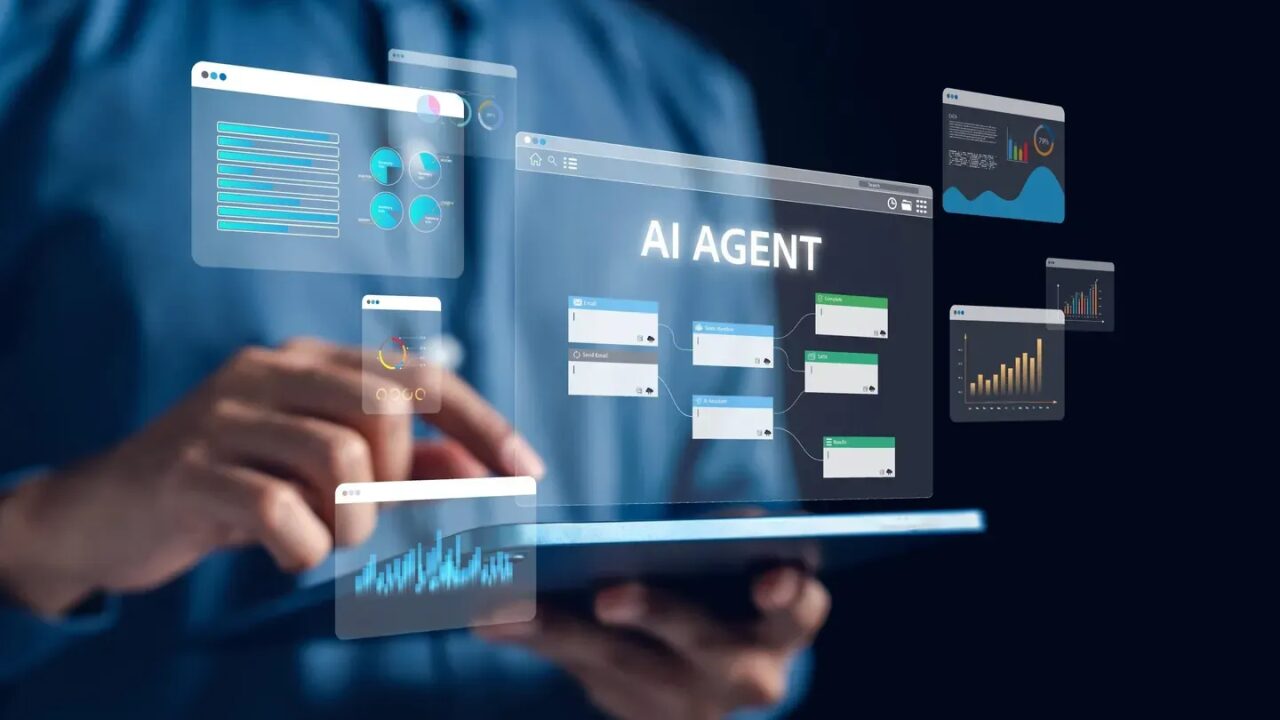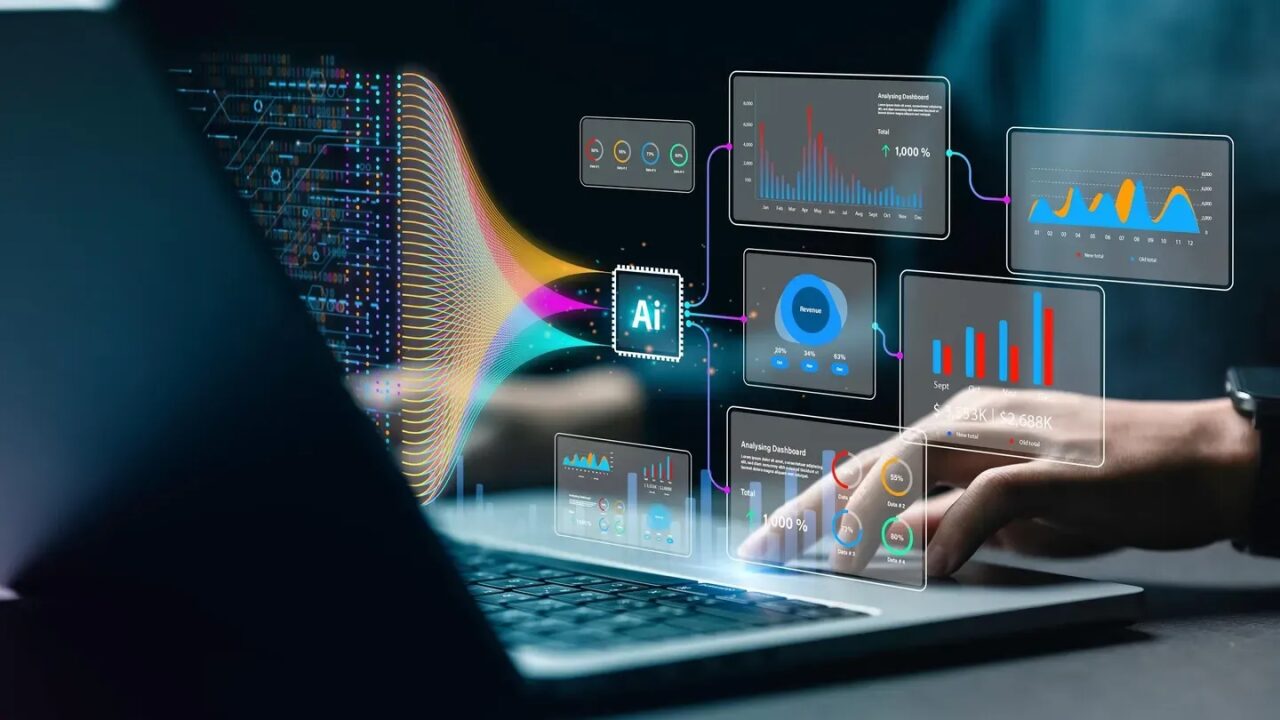This means AI will be even more intuitive and efficient in assisting us at work and home and capable of understanding and executing tasks in ways we might not ever consider.
However, achieving AGI also raises ethical concerns. While it doesn’t mean AI will surpass human intelligence (that's the singularity, a separate event), we'll still have to take steps to ensure that everything it is doing is in our best interests. And safeguards will have to be in place for times when its own ideas about what that means might be different from our own.
Quantum AI
By 2034, it’s very possible that the fusion of quantum computing and AI will have kicked off a new era of supercomputing and scientific discovery.
Quantum computing has the potential to vastly speed up some of the computation used in AI algorithms, for example, quickly solving optimization problems that would take far longer using classical computers.
This has already led to advances in drug discovery and material sciences, as well as the efficiency of route planning by delivery companies like DHL. Within 10 years, accessibility to quantum computing technology will have increased dramatically, meaning many more discoveries and efficiencies are likely to have been made.
The emergence of quantum computing is likely to also create significant challenges for society, and by 2024, these could be hot topics. Specifically, there are concerns about what super-powerful, AI-augmented computers will mean for security and encryption. Some predict that their sheer power means our ability to keep information private could effectively disappear. Let’s hope that society has come up with some robust solutions to these problems by 2034!
AI-Powered Super Humans
Today, we talk about being able to augment our capabilities with AI, but by 2034, has this evolved to the point that we’re all basically superhumans?
AI applied to neural interface technology of the type that’s already being trialed in humans could, in theory, enhance our cognitive capabilities, making us better at learning, recalling information, and even making decisions.
Advances in AI-augmented prosthetics could give us mechanical limbs or exoskeletons, making us far stronger and more physically capable than we are today. Camera and optical implants could improve our vision and make the decline of eyesight in old age a thing of the past. And tools that give us insights into behaviors and human-to-human interactions could help to increase our empathy and emotional intelligence, allowing us to better understand each other.
One important safeguard, though, will be making sure that these don’t only benefit the elites. There’s already a gulf opening in society between the technological haves and have-nots. Developing ways to ensure that this technology is of benefit to as many people as possible, rather than only those with the most money or living in the most advanced nations, will be an important challenge for the next 10 years.
Robots, Co-bots And Automated Friends
Big advances have been made in robotics in recent years, thanks to the application of AI to problems like balancing and moving in proximity to humans.
So, by 2034, it might seem reasonable to think that mechanical companions will be all around us. Collaborative robots (co-bots) will have moved out of the industrial settings they’re found in today and into our homes, offices, amenities, and public spaces. We’ll rely on them for help with household chores as well as for companionship and support and put our lives in their hands if we end up on the operating table.
Robots will easily handle all types of manual work, from deliveries to road repairs and construction. And in parts of the world with an aging population, they’ll play an important part in providing care and safety for us in our homes. Integrated with natural language technology, they will talk to us, learn about us, and develop their own personalities. This could lead to us forming relationships with them in a very different way than we have done with other technologies.
In a decade from now, their integration into society could be one of the most important issues that society is facing. How much autonomy is it safe to give them? And are there ethical lines that we shouldn’t cross when it comes to treating intelligent entities – even ones we’ve created ourselves – as labor machines and property?
AI in Government and Law Enforcement
By 2034, AI may be firmly entrenched in the infrastructure used to manage public affairs and the justice systems. Does this mean we will have an AI prime minister who provides better leadership than a human? Well, depending on your political views, you might argue that it couldn’t be any worse. But I don’t think we’ll quite be ready for government-by-AI in 10 years’ time.
Instead, what I think we’ll have is a far deeper integration of smart governance technology into administration. This will streamline processes from managing refuse collection routes to issuing permits and licensing, making decisions on urban planning matters, and ensuring that services are delivered in a way that is valuable and personalized to each citizen.
Those involved in legislating and policy-making will use AI to understand what the public wants and set their priorities from there. It will proactively predict issues that are likely to be of concern in the future so steps can be taken to nip them in the bud. Similarly, police will routinely use predictive technology to anticipate where crime is likely to occur and even who is likely to offend. These capabilities will be an important part of the discourse in 2034 as we find ourselves increasingly under surveillance by government and law enforcement technology, and it becomes increasingly difficult to avoid leaving a digital footprint wherever you go.







Social Media